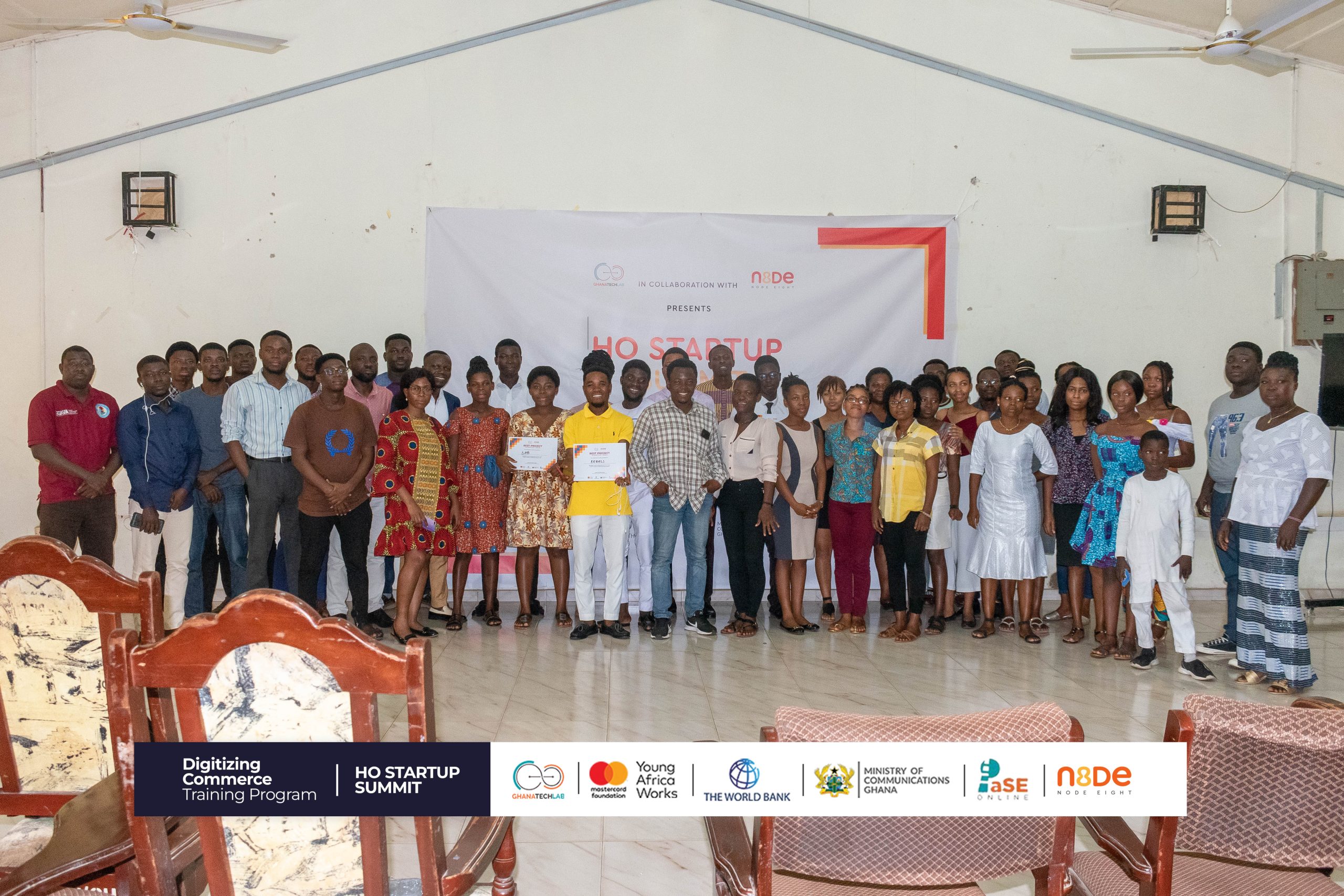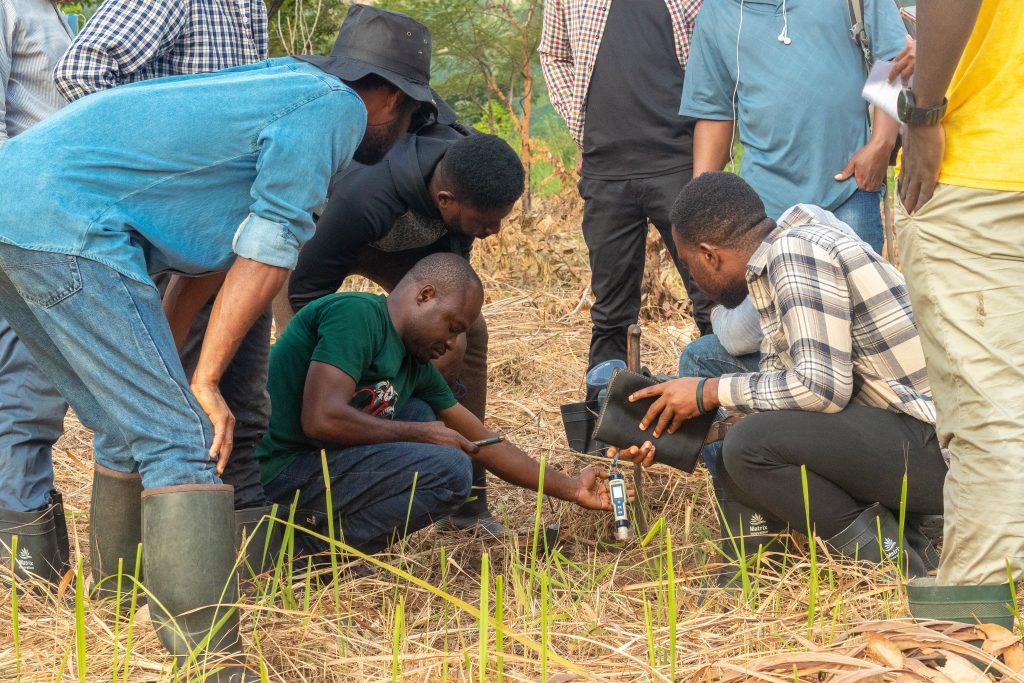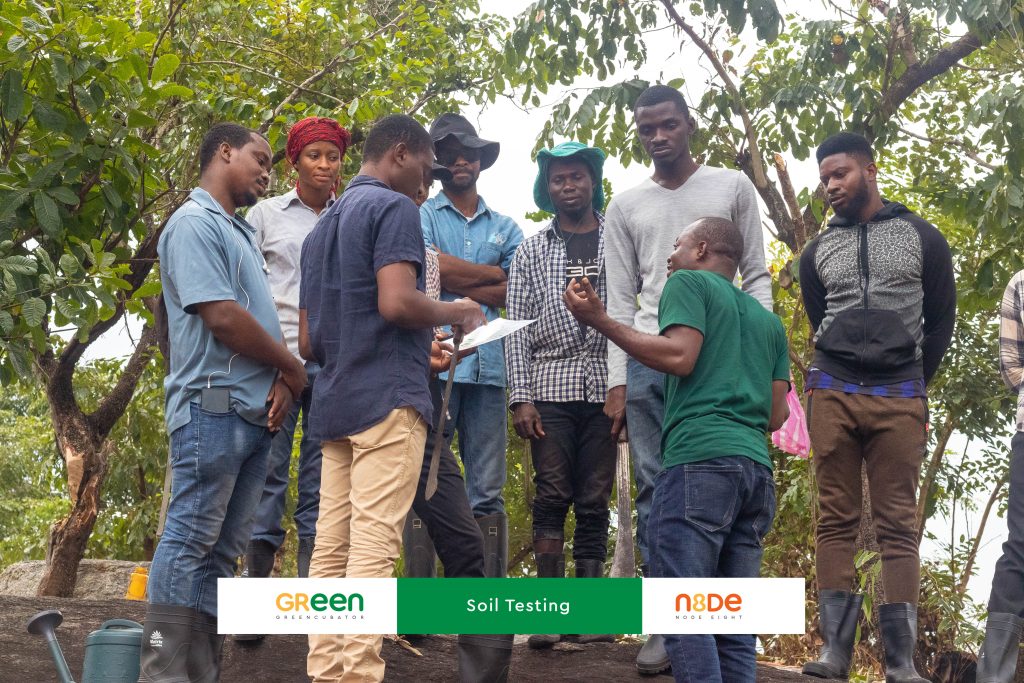Node Eight’s Valuable Contribution Made Me A Digital Marketer.
September 8, 2022
Startup Scenes Growth. Node Eight leading the Nurturing in Ho.
September 25, 2022Agriculture is the backbone of Ghana’s economy, accounts for about 32% of the Gross Domestic Product (GDP), and employs about 51% of the total labor force. The sector is a significant source of government revenue, foreign exchange earnings, and livelihoods for rural households.
The contribution of agriculture to economic growth has declined in recent years as other sectors, such as industry and services, have grown faster. However, agriculture remains essential in Ghana’s economy. According to estimation, in 2021, agriculture will contribute about 22% to GDP and employ about 54% of the labor force.
The Agricultural sector faces several challenges including declining soil fertility, limited access to improved seeds and technology, low productivity due to small farm sizes, and unpredictable weather patterns associated with climate change, among others. To increase productivity and competitiveness in global markets, these challenges must be addressed.
The government has identified some critical areas for intervention including investments in irrigation infrastructure; promotion of agro-processing industries; strengthening linkages between farmers and agro-processors, research and development for new technologies, provision of extension services, sensitization on climate-smart agricultural practices, improvement in access to finance, creation of an enabling environment for private sector investment in agriculture, et cetera.
With proper implementation of these policies, there is great potential for increased agricultural production which would lead to higher incomes for farmers, more jobs throughout the value chain, and increased food security. There would also be positive spillover effects on other sectors such as transportation, storage, and marketing.

Agriculture is an employment opportunity for the youth.
For the Ghanaian youth, agriculture has the potential to create employment which can significantly help reduce Ghana’s high unemployment rate. For instance, annually, about 60,000 young people enter the job market from Tertiary Institutions across the country. However, according to a recent report by the Institute of Statistics, Social and Economic Research (ISSER) of the University of Ghana, only 10% of these graduates find jobs after the first year of graduation.
Agro-Entrepreneurship opens a more sustainable pathway to job and wealth creation in Ghana. Many young people do not consider farming an attractive career choice after school. This is largely due to limited stories of successful young farmers compared with other careers. The average age of farmers in Ghana is 55 years. There is an urgent need to encourage more young people into farming to improve food security and reduce our over-dependence on food imports.
Despite the advantage entering agriculture poses to these graduates, the entry barriers for today’s graduates are enormous. As a graduate with no capital, these barriers continue to serve as major discouragement to increasing the number of youths in agriculture. Consequently, the young and energetic do not get the chance to use their youthful energies to feed the country and contribute to its GDP. The entry-level challenges include access to land, agricultural inputs, seeds, irrigation, and skills required to grow a successful farm venture.
Introduction of Node Eight’s GreenCubator Program
To remove the entry-level barriers to farming and increase the number of youths in agriculture while reducing the youth unemployment rate the Green Lab of Node Eight has launched and begun the implementation of the Node Eight GreenCubator Program over the past five weeks.
The green Incubator program is a four (4) months incubator program designed to support young people, especially graduates, to launch their first farm. Our mission is to make farming appealing and remove all the barriers to entry for young graduates.

We are supporting unemployed youth with practical farming skills, a plot of irrigated land, seed, and agricultural inputs to launch their first farm. Also, they are receiving training on best farm management practices to increase yield and post-harvest handling. The program also facilitates peer-to-peer learning and mentorship to keep new farmers motivated in their journey.
Furthermore, to prepare the incubuatees for the future of entrepreneurship, they are undergoing entrepreneurship and financial management training to manage the business aspects of their farms. At the end of the program, off-takers will buy the harvest of all the farms, providing direct income to new farmers. Ultimately, the GreenCubator Program design is to assist green entrepreneurs to practice the skills and form the habits necessary for success in agriculture.
Read more about eligibility for the Node Eight GreenCubator Program.
The What?
The Node Eight Green Lab seeks to tackle the unemployment among recent graduates and dependence on food importation using incubated farm ventures as a tool. The approach is adopted commonly in the tech startup ecosystem with a proven track record of success.
The Node Incubator Program removes the entry barriers for young people interested in farming, empowers them with practical farm venture-building skills, and prepares them to launch into commercial farming after the program.
The Programs will nurture 100 new farmer entrepreneurs each year, 30 new investment-ready farms of Ghc 100,000 capacity, and reach over 10,000 youth through advocacy drives.

Follow the journey on Instagram & Tiktok for more video content.



